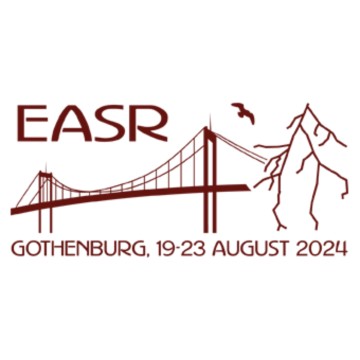All Events
Back To Events


EASR
Professor Christopher Jain Miller, PhD co-organized a panel with Tine Vekemans (Ghent University) for the 21st Annual Conference of the European Association for the Study of Religions entitled “Critical studies of south asian religious responses to ecological degradation and climate change.”
This panel seeks to contribute to ongoing research and discussions at the intersection of religion, ecology, and climate change within the context of South Asian religions. As such, this panel will offer insights derived from in-depth studies of the South Asian context that contribute to broader discussions on sustainable practices and ethical responses to the shared challenges ecological degradation and climate change.
Panel Chair
- Tine Vekemans, Professor of South Asian Languages and Cultures, Dept. of Languages and Cultures, Ghent University [Belgium]
Panelists
- Heleen De Jonckheere, Lecturer of South Asian Religions School of History, Religions and Philosophies, SOAS, University of London [UK]
- Patton E. Burchett, Professor, Department of Religious Studies, College of William & Mary [US]
- Christopher Jain Miller, Professor of Jain and Yoga Studies, Claremont School of Theology - Universität, Zürich - Arihanta Institute [Switzerland]
Gurmeet Kaur, Ph.D., Panjab University, Chandigarh [India]
The theme of EASR this year is "Nature, Ecology, and Religious Responses to Climate Change".
Dr. Miller's conference presentation is entitled:
When Traditional Knowledge Fails: Yoga, Ecology, and the Case of Practicing Purifying Pranayama in South Asian Air Pollution
Air pollution in South Asia is not a new phenomenon, but a lingering and increasingly tragic and deadly situation. Seasonal air pollution from stubble burning, the burning of unclean fossil fuel, relentless construction, freely flowing industry-borne hazardous air pollutants, and the burning of waste collectively produce perpetually unsafe air quality indexes that contribute to poor human health and environmental degradation. South Asian religions, and yoga in particular, have often been proposed as solutions to these and other environmental issues in the field of Religion and Ecology. This paper asks whether or not some traditional South Asian knowledge systems including yoga might sometimes fail us in such endeavours.
Existing scholarship focusing on yoga and ecology adopting theological methods has emphasized the ways by which yogic thought and praxis might beneficially shift our ecological worldviews, improve our relationship to the environment, bolster our health, and provide ethical guidance that could potentially remediate and reduce humanity's anthropogenic environmental destruction and damage to the climate such as that wrought by air pollution. This paper, which adopts an ethnographic method, approaches the topics of yoga, ecology, and air pollution from the opposite direction, beginning with the question as to whether or not there might be a case where yogic thought and praxis can fail us in these regards. In other words, can yoga influence ways of thinking, acting, and being in the world that are in fact detrimental to the environment, the climate, and human health?
To answer this question, the paper brings data gleaned from ethnographic fieldwork undertaken at a South Asian yoga institute regarding the practice of purifying pranayama (breath control) into dialogue with critical insights from the field of Pollution Studies. At the yoga institute, pranayama is practiced in air-polluted conditions to purify the lungs of inhaled accumulated toxins causing ailments such as chronic asthma and respiratory issues. As the paper shows, the emic, health-enhancing, self-purifying, and self-sacrificing model of the yogic body gleaned from medieval yoga texts that is disseminated at the yoga institute operates alongside an etic, social scientific model of an environmentally and epigenetically entangled, late capitalist human body. Operating simultaneously, these two models of the yogic body thereby produce two sacrifices simultaneously: an internal, soteriological sacrifice within the "purified" hatha-yogic body and a slow, dangerous, external sacrifice on the uneven pyre of necropolitical capitalism.
